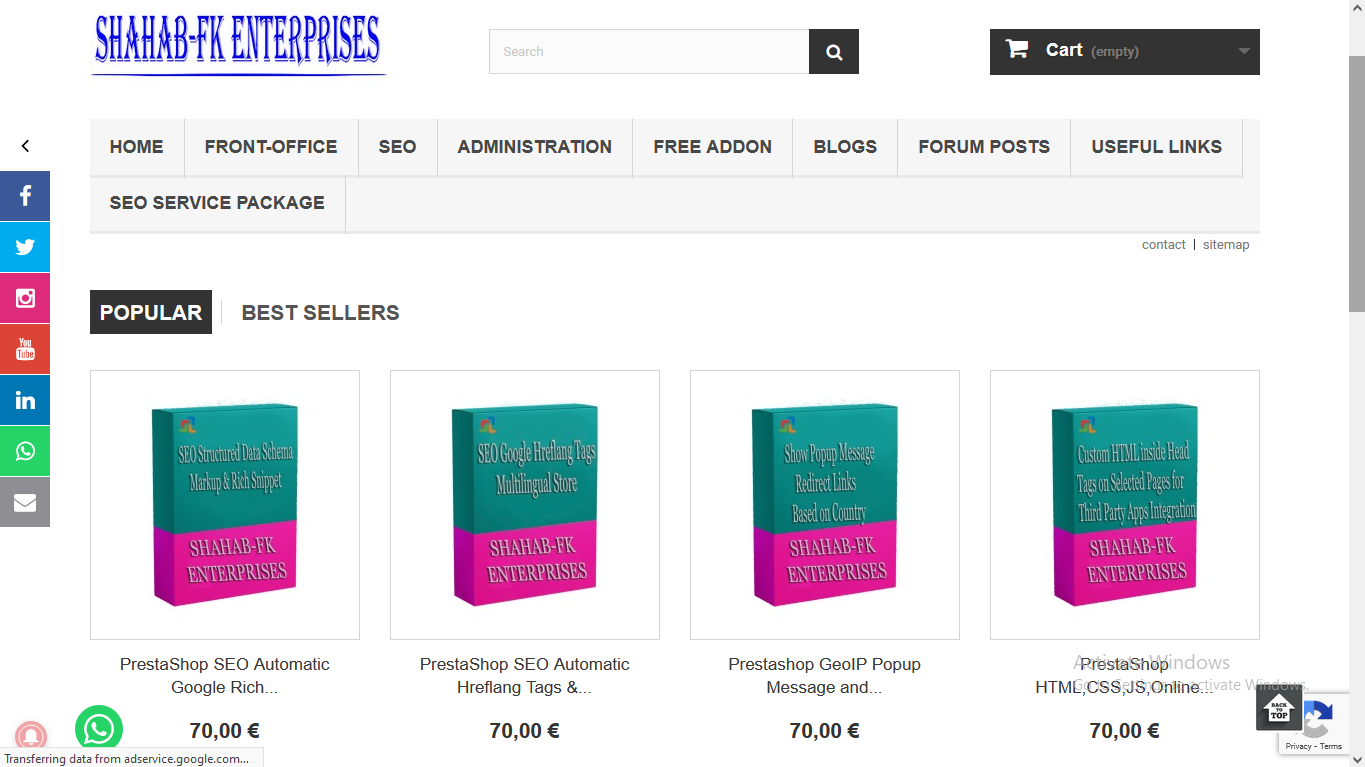Choosing an e-commerce platform depends on various factors, including the size of your business, technical expertise, budget, and specific requirements. Here’s a comparison of Shopify, PrestaShop, Magento, OpenCart, and WooCommerce:
- Shopify:
- Pros:
- Extremely user-friendly with a simple setup process.
- Hosted solution, so you don’t have to worry about server management.
- App Store with a wide range of plugins for additional features.
- Good for beginners and small to medium-sized businesses.
- Cons:
- Limited customization compared to self-hosted solutions.
- Monthly subscription fees.
- Transaction fees for external payment gateways if not using Shopify Payments.
- Pros:
- PrestaShop:
- Pros:
- Open-source and free to use.
- Good balance of features and customization options.
- Active community with a variety of themes and extensions.
- Suitable for small to medium-sized businesses.
- Cons:
- May have a steeper learning curve for beginners.
- The ecosystem for extensions and themes might not be as extensive as some other platforms.
- Pros:
- Magento:
- Pros:
- Highly scalable and suitable for large enterprises.
- Robust feature set, especially for B2B e-commerce.
- Highly customizable, with a vast marketplace for extensions.
- Cons:
- Steeper learning curve, and it may be overwhelming for smaller businesses.
- Resource-intensive, requiring a powerful hosting environment.
- The enterprise version (Magento Commerce) comes with a substantial cost.
- Pros:
- OpenCart:
- Pros:
- Lightweight and fast, suitable for small to medium-sized stores.
- User-friendly admin interface.
- Active community with a variety of extensions and themes.
- Cons:
- Not as feature-rich as some other platforms.
- The marketplace might not be as extensive as larger e-commerce platforms.
- Pros:
- WooCommerce:
- Pros:
- Integrates seamlessly with WordPress, leveraging its content management capabilities.
- Extensive customization options with a variety of plugins.
- Good for small to medium-sized businesses, especially those already using WordPress.
- Cons:
- May not be as scalable as some standalone e-commerce platforms.
- Relies on the WordPress ecosystem, which may limit some functionalities.
- Pros:
In summary, the best e-commerce platform for you depends on your specific needs and priorities. If you prioritize ease of use and a hosted solution, Shopify might be a good choice. If you need more customization and are comfortable with self-hosting, PrestaShop, Magento, OpenCart, or WooCommerce (especially if you’re using WordPress) might be more suitable. It’s important to consider factors like scalability, budget, and the level of technical expertise required for each platform.
Post Views: 494

